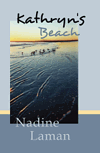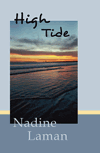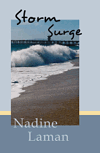Everyone has their own style of writing. Well, except for those who try hard to copy someone else. If you look at what comes out tomorrow, it is already at the very least 2 years old. That is one of the reasons it is said, don't write to the market. There is no way to play catchup with the market. If something is hot now, writing it now is writing it late.
Nonetheless, everything we read influences our writing, both a novel and information about writing.
Of course I'm trying to influence writers - influence and encourage. I'm encouraging brave writing. Drop words that make the writing hesitant, drop the gimmicks, write for the reader's enjoyment, be true to the craft, and all that jazz.
Some hesitant words are: almost, really, so, nearly, passive verbs - and that's what I got from the top of my head. I'll add more as I think of them. But hesitant writing is apologetic feeling to read. I think I'll go to the store can be simply, I went to the store. It was almost 8 PM when... Unless something special happens at eight, just say it was eight or evening or dinner time (not the same time as tea time).
The goal is to write your best and I hope you write better than me - and those you help along the way, write better than you.
My preferred style to write is first person, present tense. It allows, no - demands, an intimate relationship between the reader and the MC. I'm not shy about toying with emotions. Every one of my novels begins in the middle of a conversation. I deliberately use literary devices at certain points. That's my style. And I like to write literary novels, though they do not sell as well as blockbuster novels of any other genre.
Literary devices are nearly an obsession with me. But like any food, too much of a good thing is simply, too much. Take alliteration, for example. A little alliteration goes a long ways. It is, by my understanding, a poetry device. It works well in titles and very limited use in prose. Alliteration and rhyming work better in children's books than adult novels. Still care should be used when considering their use.
Parallelisms work in titles, and are used in prose much more than most people realize. For all their simplicity, it is amazing how many people don't get parallelisms correct simply by mix-matching the tense. Think Sesame Street here, two of these things go together and one doesn't. Make them all match. And use commas on each item.
Not to go off on the use of commas when making a list, but here goes anyway. For some reason, and it is perfectly acceptable to do so, people leave out the comma prior to the 'and'. The trick is to make sure the 'and' means 'these two things go together' - like when making a compound subject. You know compound subjects, I'm not going to insult anyone with an example.
"I like photos in color, and in black and white." The second 'and' is to connect those two together. "I went to the store for bread, milk and cookies." Milk and cookies are yummy together, but those are two separate items, so it needs a comma after milk. I admit that comma is optional, but really, how hard is it to put it in?
Foreshadowing and Reminiscing are two sides of the same coin. I use both, but foreshadowing is a much stronger device than reminiscing. Reminiscing should be used when it makes sense that the character should do that, and at a time in the story when it fits naturally. For example, Kathryn reminisces (longs for) her past life. I don't use reminiscing to catch the reader up on something they missed because it happened before the story. I use it because that is where Kathryn is at that time, wanting the past over the present. She longs for the safety of what she knows, not for what she fears.
Now foreshadowing, that's writing. In TV crime shows the camera pans to an item that has no relevance to the moment, holds, moves to one of the characters. Give me a break! They just showed something that will be pivotal later. That is one bit of foreshadowing, but pretty shallow in my opinion. I like things natural in storytelling. So the item has to be something occurring naturally, not out of place on a bookshelf so anyone would know it was a key. Might as well put a sign up that says, this is the real murder weapon. Sheesh.
The greatest foreshadowing I've ever done is to put the ending of the third book, Storm Surge, in the beginning of the first book, Kathryn's Beach. That's rich. And if you've read all three, do you see the connection to the diaries in the middle of that foreshadowing? Can't just drop it in and 600 pages later, pick it up again. Leave a few bread crumbs. The clue in Kathryn's Beach is connected through the diaries, that is why it all feels natural.
Readers are smart, give them a real puzzle to solve.
Side note: In yesterday's post's comments I mentioned that we are putting together these tips for those who have been cutting and pasting them elsewhere. I'll let you know when we have that up and going on my website.
Tuesday, February 2, 2010
Subscribe to:
Post Comments (Atom)

 When Paul Fenton stops for breakfast in a small town, he gets more than he bargained for in the process.
When Paul Fenton stops for breakfast in a small town, he gets more than he bargained for in the process.
 When two-hundred-year-old human remains are discovered on one of Neptune's moons, Earth's history falls into question.
When two-hundred-year-old human remains are discovered on one of Neptune's moons, Earth's history falls into question.
 Emily's husband persuades her to try thalidomide to ease her symptoms as she is unaware of the devastating effects.
Emily's husband persuades her to try thalidomide to ease her symptoms as she is unaware of the devastating effects.
 Who is the women's shelter bomber? Melissa Ryan suspects that her husband knows.
Who is the women's shelter bomber? Melissa Ryan suspects that her husband knows.
 Further developments with the Wilder family.
Further developments with the Wilder family.
 A hidden past shakes the O'Donovan family to its core
A hidden past shakes the O'Donovan family to its core
 A swirl of emotion and choice, set in Cape Town, South Africa
A swirl of emotion and choice, set in Cape Town, South Africa
 Love is a constant, but it comes at a price.
Love is a constant, but it comes at a price.
 When the road ahead is unclear, sometimes you have to rely on trust.
When the road ahead is unclear, sometimes you have to rely on trust.
 The struggle between good and evil is ages old. It gets all the more complicated when the good guys aren't all good and the bad guys have redeeming qualities.
The struggle between good and evil is ages old. It gets all the more complicated when the good guys aren't all good and the bad guys have redeeming qualities.
 Story of a land mothering two races of people – the light-skinned and the dark-skinned.
Story of a land mothering two races of people – the light-skinned and the dark-skinned.
 A gifted Ukrainian ballerina comes into possession of a mysteriously coded address book.
A gifted Ukrainian ballerina comes into possession of a mysteriously coded address book.
 Six passengers' lives change for better or worse after they arrive in Honiton.
Six passengers' lives change for better or worse after they arrive in Honiton.
 Resilience and love in a harsh and unforgiving age
Resilience and love in a harsh and unforgiving age
 Kathryn's Beach
Kathryn's Beach High Tide
High Tide Storm Surge
Storm Surge
'My preferred style is first person, present tense. It allows, no - demands, an intimate relationship between the reader and the MC.'
ReplyDeleteTo be fair to you Nadine you say 'preferred style,'
So only to point out there are times when non-first tense is preferred. For example in my novel that I'm working on at present. There is a main character, but other scenarios have to happen that he doesn't know about.
But at times first tense is an absolute necessity, for example in Camus 'The Stranger' - everything has to be seen though the hero's eyes.
Personally I prefer to write in non-present tense and in some ways I prefer to read non-present tense. BUT I hadn't really taken in that your novels were written in present tense until I came to check!
Hi Glyn,
ReplyDeleteJust thought I'd give a warning. I had one person refuse to review my book because it was written in first person - didn't even look at it, just refused flatly based on that.
It can get sticky. During that post-Thanksgiving thing (remember?)in Kathryn's Beach, I wanted to show what was going on at Karen's house - just couldn't. Had to write around it.
BTW, I agree it would be tricky to write your WIP in first person. Don't think I'd like it as well that way.
ReplyDeleteAt school I had a teacher who said, 'Never write in the first person/present tense because it is restrictive.'
ReplyDeleteI do think that you have to write it as it suits the novel. I can't right now imagine writing a book in the first person. But a while ago I wrote a short story that couldn't have been anything but first person, so I would never say never.
Glyn, you inspired me to go back and make it clear (edit my post) that I prefer to write in first person. I know that most likely when I don't, I end up going back and switching it, BTW that is an obnoxious tast.
ReplyDeleteSo the point that you make, and I agree with, is to develop your style and to listen to what each ms asks of you.
Good job on calling me on that one.
And...I think I had the same teachers (until I landed at uni). Remember never, ever write in second person? Cook books are full of "you" - okay it is an 'understood you' but...
ReplyDeleteHeat oven to...you heat oven. Mix...you mix. That is the point of learning, so when know what to do and when.
Hi Nadine,
ReplyDeleteI am soaking up your posts like a sponge! All good stuff! Thanks so much for sharing what you know!
xxoo
Peggy
Peggy, Hope it helps. There is so much to learn. I am a student of the craft too. There is probably a place where people can share all their info in an easily retrievable format.
ReplyDelete